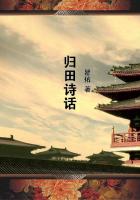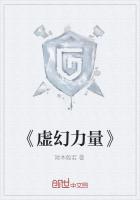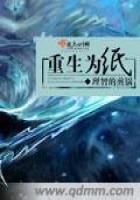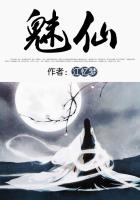Braver than the bravest, You sought honors at death's door; Could you not remember One who weeps at home-- Could you not remember me?
Braver than the bravest, You sought honors more than love; Dear, I weep, yet I am not a coward; My heart weepsforthee--MyheartweepswhenIrememberthee!
--Sioux Love Song.
The sky is blue overhead, peeping through window-like openings in a roof of green leaves. Right between a great pine and a birch tree their soft doeskin shawls are spread, and there sit two Sioux maid- ens amid their fineries--variously colored por- cupine quills for embroidery laid upon sheets of thin birch-bark, and moccasin tops worked in colors like autumn leaves. It is Winona and her friend Miniyata.
They have arrived at the period during which the young girl is carefully secluded from her brothers and cousins and future lovers, and re- tires, as it were, into the nunnery of the woods, behind a veil of thick foliage. Thus she is expected to develop fully her womanly qualities. In meditation and solitude, entirely alone or with a chosen companion of her own sex and age, she gains a secret strength, as she studies the art of womanhood from nature herself.
Winona has the robust beauty of the wild lily of the prairie, pure and strong in her deep colors of yellow and scarlet against the savage plain and horizon, basking in the open sun like a child, yet soft and woman-like, with droop- ing head when observed. Both girls are beau- tifully robed in loose gowns of soft doeskin, girded about the waist with the usual very wide leather belt.
"Come, let us practice our sacred dance," says one to the other. Each crowns her glossy head with a wreath of wild flowers, and they dance with slow steps around the white birch, singing meanwhile the sacred songs.
Now upon the lake that stretches blue to the eastward there appears a distant canoe, a mere speck, no bigger than a bird far off against the shining sky.
"See the lifting of the paddles!" exclaims Winona.
" Like the leaping of a trout upon the water!" suggests Miniyata.
"I hope they will not discover us, yet I would like to know who they are," remarks the other, innocently.
The birch canoe approaches swiftly, with two young men plying the light cedar paddles.
The girls now settle down to their needle- work, quite as if they hadnever laughed or danced or woven garlands, bending over their embroidery in perfect silence. Surely they would not wish to attract attention, for the two sturdy young warriors have already landed.
They pick up the canoe and lay it well up on the bank, out of sight. Then one procures a strong pole. They lift a buck deer from the canoe-- not a mark upon it, save for the bullet wound; the deer looks as if it were sleeping! They tie the hind legs together and the fore legs also and carry it between them on the pole.
Quickly and cleverly they do all this; and now they start forward and come unexpectedly upon the maidens' retreat! They pause for an instant in mute apology, but the girls smile their forgiveness, and the youths hurry on toward the village.
Winona has now attended her first maidens' feast and is considered eligible to marriage. She may receive young men, but not in public or in a social way, for such was not the custom of the Sioux. When he speaks, she need not answer him unless she chooses.
The Indian woman in her quiet way preserves the dignity of the home. From our standpoint the white man is a law-breaker! The "Great Mystery," we say, does not adorn the woman above the man. His law is spreading horns, or flowing mane, or gorgeous plumage for the male; the female he made plain, but comely, modest and gentle. She is the foundation of man's dignity and honor. Upon her rests the life of the home and of the family. I have often thought that there is much in this philos- ophy of an untutored people. Had her husband remained long enough in one place, the Indian woman, I believe, would have developed no mean civilization and culture of her own.
It was no disgrace to the chief's daughter in the old days to work with her hands. Indeed, their standard of worth was the willingness to work, but not for the sake of accumulation, only in order to give. Winona has learned to pre- pare skins, to remove the hair and tan the skin of a deer so that it may be made into moccasins within three days. She has a bone tool for each stage of the conversion of the stiff raw-hide into velvety leather. She has been taught the art of painting tents and raw-hide cases, and the manufacture of garments of all kinds.
Generosity is a trait that is highly developed in the Sioux woman. She makes many mocca- sins and other articles of clothing for her male relatives, or for any who are not well provided. She loves to see her brother the best dressed among the young men, and the moccasins espe- cially of a young brave are the pride of his woman-kind.
Her own person is neatly attired, but ordi- narily with great simplicity. Her doeskin gown has wide, flowing sleeves; the neck is low, but not so low as is the evening dress of so- ciety.
Her moccasins are plain; her leggins close- fitting and not as high as her brother's. She parts her smooth, jet-black hair in the middle and plaits it in two. In the old days she used to do it in one plait wound around with wam- pum. Her ornaments, sparingly worn, are beads, elks' teeth, and a touch of red paint. No feathers are worn by the woman, unless in a sacred dance.
She is supposed to be always occupied with some feminine pursuit or engaged in some social affair, which also is strictly feminine as a rule. Even her language is peculiar to her sex, some words being used by women only, while others have a feminine termination.
There is an etiquette of sitting and standing, which is strictly observed. The woman must never raise her knees or cross her feet when seated. She seats herself on the ground side- wise, with both feet under her.
Notwithstanding her modesty and undemon- strative ways, there is no lack of mirth and relaxation for Winona among her girl compan- ions.















